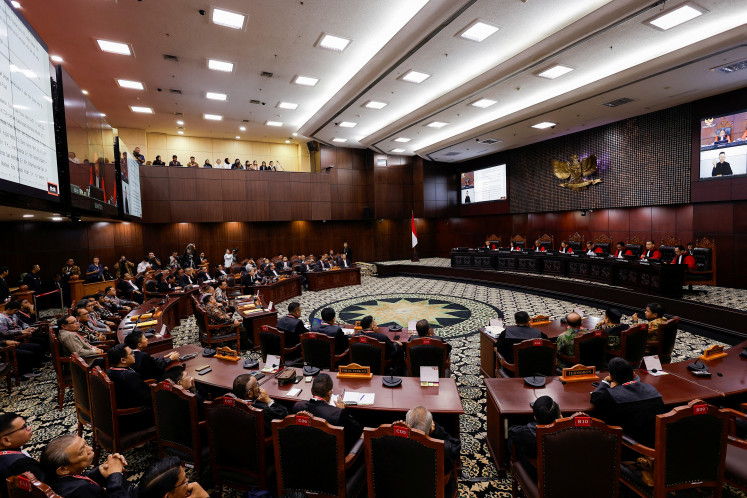Millions of Chinese workers start traveling ahead of Fridayʼs peak
Lunar New Year travel welcomed, consumption key to economy.
Change Size

M
illions of urban workers were on the move across China on Wednesday ahead of the expected Friday peak of its Lunar New Year mass migration, as China's leaders looked to get its COVID-battered economy moving.
Unfettered when officials ended three years of some of the world's tightest COVID-19 restrictions last month, workers streamed into railway stations and airports to head to smaller towns and rural homes, sparking fears of a broadening virus outbreak.
Economists and analysts are scrutinizing the holiday season, known as the Spring Festival, for glimmers of rebounding consumption across the world's second-largest economy after new gross domestic product (GDP) data on Tuesday confirmed a sharp economic slowdown in China.
Any protracted slowdown could worsen the policy challenges facing President Xi Jinping, who must pacify a pessimistic younger generation who took to the streets in November in historic protests against the "zero-COVID" policy he was then championing.
While some analysts expect the recovery to be slow, Chinese Vice Premier Liu He declared to the World Economic Forum in Switzerland on Tuesday that China was open to the world after three years of pandemic isolation.
National Immigration Administration officials said that on average, half a million people had moved in or out of China per day since its borders opened on Jan. 8, state media reported. That is expected to rise to 600,000 a day once the holiday formally starts on Saturday.
But as workers flood out of megacities, such as Shanghai, where officials say the virus has peaked, many are heading to towns and villages where unvaccinated elderly have yet to be exposed to COVID-19 and healthcare systems are less equipped.
Joy and mourning
As the COVID-19 surge intensified, some were putting the virus out of their mind as they headed for the departure gates.
Travelers bustled through railway stations and subways in Beijing and Shanghai, many ferrying large wheeled suitcases and boxes stuffed with food and gifts.
"I used to be a little worried [about the COVID-19 epidemic]," said migrant worker Jiang Zhiguang, waiting among the crowds at Shanghai's Hongqiao Railway Station.
"Now it doesn't matter anymore. Now it's okay if you get infected. You'll just be sick for two days only," Jiang, aged 30, told Reuters.
Others will return to mourn relatives who have died. For some of those, that bereavement is mixed with anger over what they say was a lack of preparation to protect the vulnerable elderly before officials jettisoned the COVID-19 restrictions in early December.
The infection rate in the southern city of Guangzhou, the capital of China's most populous province, has now passed 85 percent, local health officials announced on Wednesday.
In more isolated areas far from the swift urban outbreaks, state medical workers are going door to door this week in some outlying villages to vaccinate the elderly, with the Xinhua government press outlet describing the effort on Tuesday as the "last mile".
Clinics in rural villages and towns are now being fitted with oxygenators, and medical vehicles have also been deployed to places considered at risk.
While authorities confirmed on Saturday a huge increase in deaths – announcing that nearly 60,000 people with COVID-19 had died in hospitals between Dec. 8 and Jan. 12 – state media reported that health officials were not yet ready to give the World Health Organization (WHO) the extra data it is now seeking.
Specifically, the United Nations agency wants information on so-called excess mortality, the number of all deaths beyond the norm during a crisis, the WHO said in a statement to Reuters on Tuesday.
The Global Times, a tabloid published by the official People's Daily, quoted Chinese experts saying the China Center for Disease Control and Prevention was already monitoring such data but that it would take time before it could be released.
Doctors in both public and private hospitals were being actively discouraged from attributing deaths to COVID-19, Reuters reported on Tuesday.









